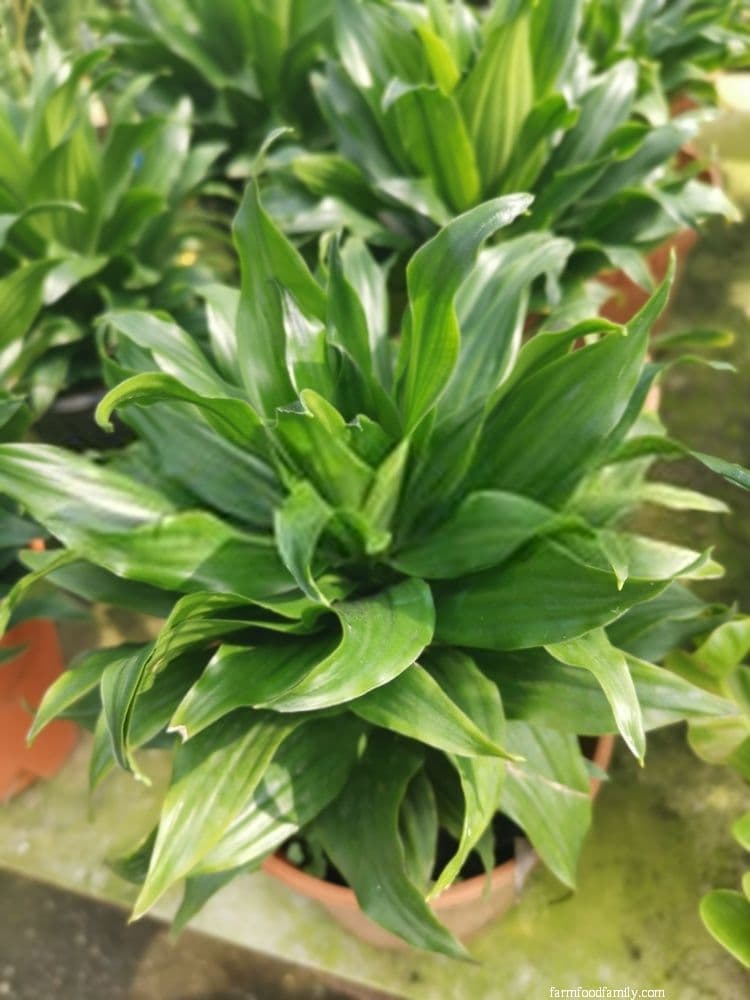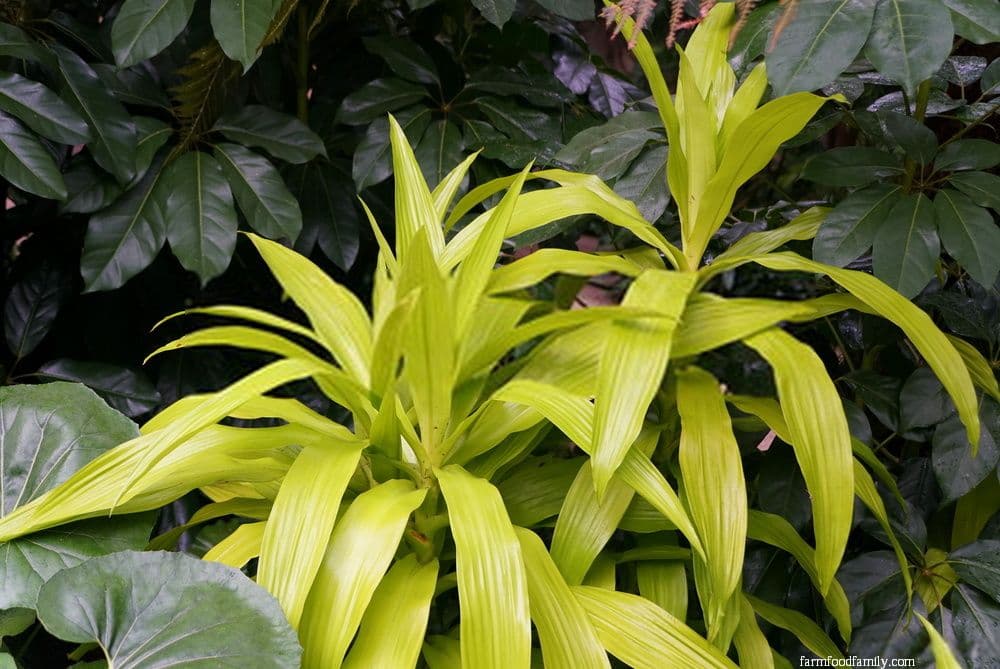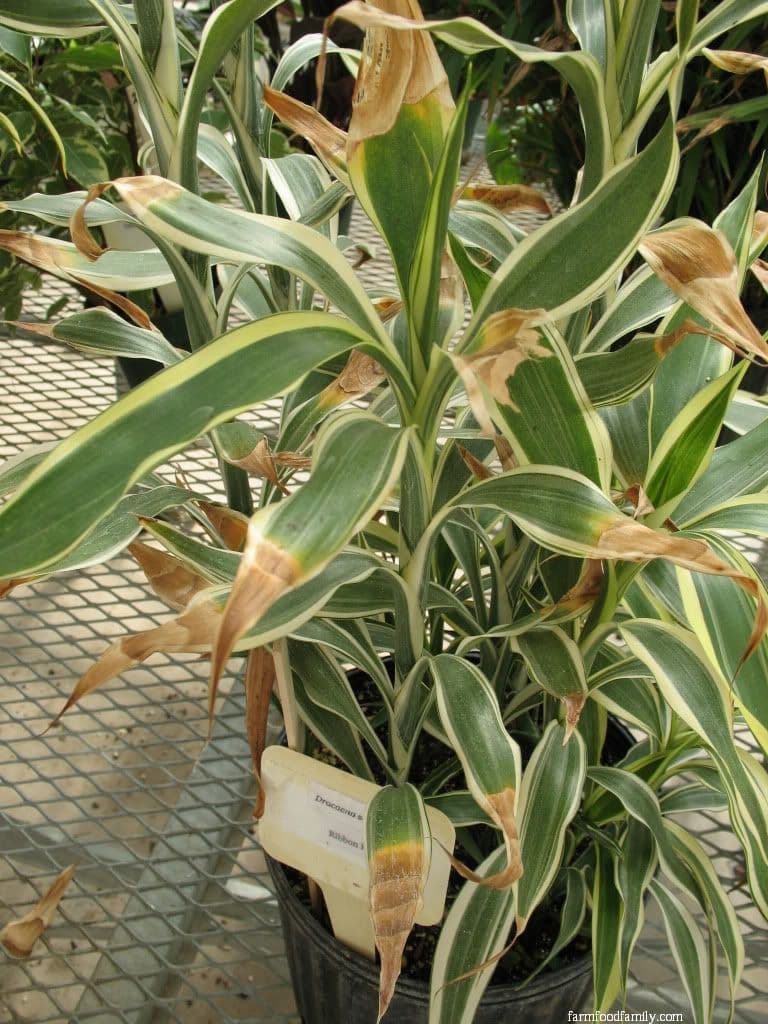Dracaena is acommon houseplant.
Helpful information such as growth and caring guides are also available.
In this article
What is a dracaena plant?

The dracaena is considered as a tropical shrub and a popular low-maintenance and drought-tolerant houseplant.
It thrives in bright lights but also in shaded, low-light areas.
Small dracaena plants are often featured in tabletops.

Much interest is given to this houseplant because of its many attractive varieties.
The foliage is dense and variegated, ranging from solid green, yellow, and sometimes striped.
As have been mentioned, there are defining characteristics for each that separates them from the rest.

These are the features that one should look for to get the best dracaena plant for you.
Dracaena Fragrans (syn.
Dracaena Deremensis)
This one is also called the corn plant.

It has a dense foliage, glossy, broad, and lancing dark green leaves.
It has green stems that look like thick canes.
It thrives well in shade but could also tolerate indirect light.

It also has a similar growth habit to that ofpalmsthat is why they are also called false palms.
It can grow to up to 6ft tall in containers.
Its leaves are bluish-green that looks like swords.

It produces cream flowers in the spring and orange berries during summer.
It grows to up to 4ft indoors with a spread of 1.5ft.
As such, it needs regular trimming for it to look neat always.

It thrives well in filtered light.
It has tapered, pleated-looking dark green foliage with wavy edges.
The name compacta on the other hand is taken from its being a small dracaena plant.

It is a favorite houseplant because it can survive in very dark areas.
It is a slow grower that could reach a max height of 6ft.
The leaves cling on broad, woody stems.

This plant can have a maximum height of 4ft when grown in containers.
The bright green leaves sport a single, creamy center/stripe running through its length.
It thrives in indirect light and does not survive temperatures above 70F.

It needs regular pruning for it to maintain its 3ft container height.
The only difference is that the Victoria has smaller leaves, but wider and triangular in shape.
It grows to up to 4ft in containers.

This one is very rare to find in local nurseries.
It looks like the yucca palm, with the same shiny, dark green leaves, spilling down.
9.Hawaiian Sunshine Dracaena (Dracaena fragrans Hawaiian Sunshine)
This one is a cousin of Lisa.

It is a new cultivar derived from another dracaena called Hilo girl.
It can grow to up to 4ft in containers.
It has lancing, sword-like leaves, with a lush green color and yellow stripes.

The foliage forms a rosette form, making a bushy look.
Its stems are woody, and the plant could grow to up to 5ft.
If you need extra brightness in your room, this is the dracaena for you.

It needs bright indirect light.
It also has an upright growth form which is perfect for interior plantings.
It grows to up to 6ft tall and can occasionally bloom tiny, white flowers in the summer.

It is frost-resistant, drought resistant and is not vulnerable to common dracaena diseases.
13.Warneckii Dracaena (Dracaena fragrans Warneckii)
This one can thrive with low light and low water.
The leaves grow out in random directions, dangling sturdily along the stems.

It grows to up to 5ft, making it a beautiful large indoor plant that islow-maintenance.
It looks like the crossover between cane and corn that comes with a woodier stem.
It is perfect for small offices as it only grows to up to 3ft in containers.

It could reach up to 6ft and is drought tolerant.
It is hardy, drought resistant and thrives well in dense shades and filtered light.
Its foliage is broader than marginata but their appearance are almost the same.

It has green leaves with cream borders.
It grows slowly and achieves a height of 3ft.
Sometimes, it produces tiny white flowers in spring.

The leaves are long and follow a star-shape growing habit.
It is bushier than most dracaena, loves humidity and thrives in indirect light.
When grown right, it produces small, yellow, or white flowers.

This one is drought resistant.
In potted containers, it grows to up to 3ft.
This one is one of those spotted dracaenas, with a max height of less than 2ft.

Its broad leaves are deep green in the edges with spots of yellow and creamy white all over.
It is also called the spotted dracaena because of its white and yellow spots all over its glossy leaves.
Its stems are very thin, somewhat resonating bamboo stems.When grown properly, it blooms white flowers during spring.

It only reaches one foot.
It is often placed in water tanks with lots of pebbles.
If planted in soil, it needs damp and well-draining ones.

It has upright, cane-like stems, with well-spaced ovate, bright green leaves with curvy edges.
It grows to up to 5ft in containers.
It thrives in filtered light.

23.Dracaena Arborea
This one is also called the Tree Dracaena and is more well-suited outdoors.
It also comes with multiple heads, forming a dense crown.
It is an attractive landscape plant that is drought-tolerant and low maintenance.

24.Snake Plant (Dracaena Trifasciata)
It is also known as theMother-in-Laws tongue.
It is usually used as ground cover or as filler plants in garden beds.
It is very hard to endure drought, cold temps, and high humidity.

It grows flat and upright to up to 4ft.
It could be poisonous to animals and humans.
When maintained well, it produces bell shaped flowers emerging from its succulent stems.

It grows to up to 6ft in the wild and can tolerate temperatures of up to 18C.
It is distinct with its dark green, sword-like leaves with yellow stripes running through its length.
It has an arching habit and a height that could reach 12ft.

It is hardy, low-maintenance, and is suitable for tropical climates.
It produces red saps that look like blood.
It is cultivated for its resin from the broad trunks and is used in many commercial purposes.

It is more of a majestic tree than a container plant.
It grows to up to 9m with dense, fine, needle-like leaves that grow exclusively upright.
How tall do dracaena plants grow?

Dracaena plantsgrow in the wild in a range of 6-12ft.
Regular pruning also makes the dracaena plant bushier in look.
These could be manifested by browning leaves or rotting stems.
you’re able to also add fertilizer.
Why are my dracaena leaves turning brown?
Are Dracaena good house plants?
Yes, and for a lot of reasons.
One, they are low-maintenance plants.
Two, they are drought tolerant and easy to grow.
Three, they tolerate various growing conditions.
Four, they provide bright spaces in the home and act as natural air purifiers.
What grows well with dracaena?
The best plants to grow with dracaena would be medium blooming annuals and more flashy perennials.
These categories include impatiens, creeping jenny, coral bells, and petunias.